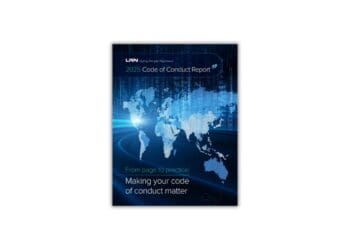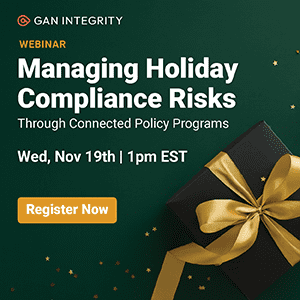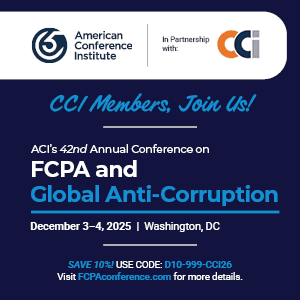The human resources (HR) function is at the center of most employers’ efforts to identify, hire and retain the people the organization needs to execute its strategy and achieve its goals. But the HR function is a key player within the organization’s compliance structure as well.
There are numerous laws and regulations governing the employment relationship that HR professionals must understand and navigate in order to help ensure their organizations avoid costly fines and other penalties, including the potential harm to the organization’s reputation.
Common examples of the types of laws regulating the employer-employee relationship include: the Fair Labor Standards Act, which establishes the minimum wage and rights to overtime pay for certain workers; federal civil rights laws, which prohibit employers from considering race, gender, age, or other protected status when making hiring and firing decisions or otherwise setting the terms and conditions of employment; the Family and Medical Leave Act (FMLA),which grants certain employees the right to take up to twelve weeks of unpaid leave each year in specific circumstances, as well as the right to be restored to the same or equivalent position upon returning from such leave; and the Uniform Services Employment and Reemployment Rights Act (USERRA), which establishes certain rights and protections for employees who are called to active military duty.
In many organizations, the HR function also manages the various compensation and benefit programs, which are heavily regulated as well. For private-sector organizations this means complying with the Employee Retirement Income Security Act’s (ERISA) reporting, disclosure, and fiduciary requirements, among other things. This is a task made more difficult by frequent, significant changes to ERISA and other relevant laws. The new Patient Protection and Affordable Care Act (PPACA) is only the most recent example; it establishes more than two dozen new rules relating to employer-sponsored health benefits, including several that take effect beginning with the 2011 plan year.
Creating and Executing HR Compliance
Clearly, human resources (HR) compliance is essential for any organization to be successful in today’s legal environment. But achieving and maintaining compliance can be elusive goals for organizations that do not recognize the challenges and develop an effective strategy to meet them.
HR compliance should be treated as a process of defining both individual and group behaviors to ensure the organization’s applicable laws and policies are followed. The HR function must hire and retain individuals that are knowledgeable about HR specific laws and can create policies and procedures in relation to these laws. Just writing policies and procedures and placing them in a repository is not enough. Once established, they must be effectively communicated throughout the organization.
This is most likely to happen in cases where HR compliance has been integrated with the organization’s overall business strategy, and the organization’s leadership has taken steps to ensure all employees understand the importance of HR compliance. Here are five basic principles organizations should follow to help achieve these goals:
- Hiring the Right Talent – Hiring the right talent within the HR function’s area of responsibilities (compensation, employee benefits, legal requirements, talent management) is one of the most important issues for organizations today. The HR function must have the knowledge, skills and experience, or be able to access it through third-party relationships.
- Proper Education and Training – The talent in the HR function must be well-versed in employment law and the regulatory/legal requirements that can affect an organization at anytime. These laws and requirements are changing all the time and it’s imperative for the HR function to stay apprised of the latest information available.
- Create an Employee Handbook and Update it Regularly – An organization’s employee handbook is one of its most important documents.The employee handbook is a communications tool that should clearly articulate the organization’s policies and procedures and how business should be conducted. It is a best practice to have legal counsel review the handbook and any new policies and procedures before distribution.
- Conducting Scheduled HR Compliance Audits – Many HR functions are typically understaffed and overworked. As noted, non-compliance can be the basis for financial and reputational risks for organizations. Conducting scheduled HR compliance audits should be a part of an organization’s overall strategy to avoid any legal liabilities.
- Communicate, Communicate and Communicate – The HR function is a critical component of an organization. Whether there are compliance issues or not, it is critical for the HR function leaders (CHRO, VP of HR, etc) to keep other executives up to speed on potential HR compliance risks and recommended remediation.
These steps will help the HR function take a large step to achieving its goal of maintaining HR compliance for the overall organization.












